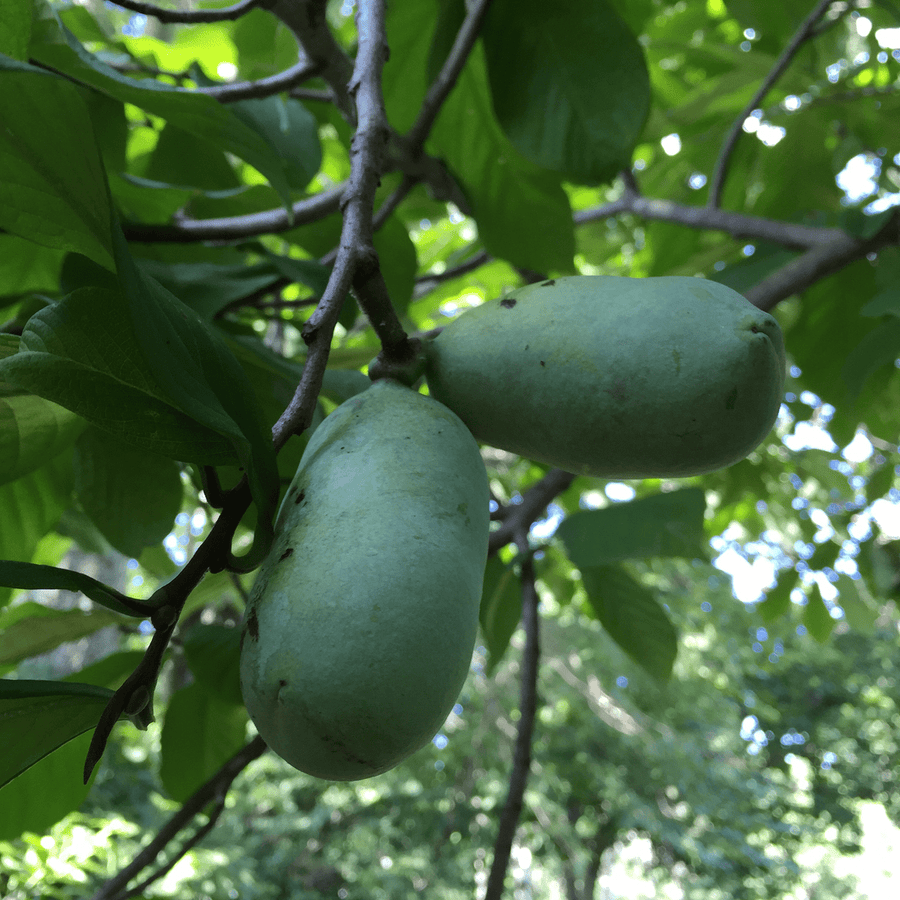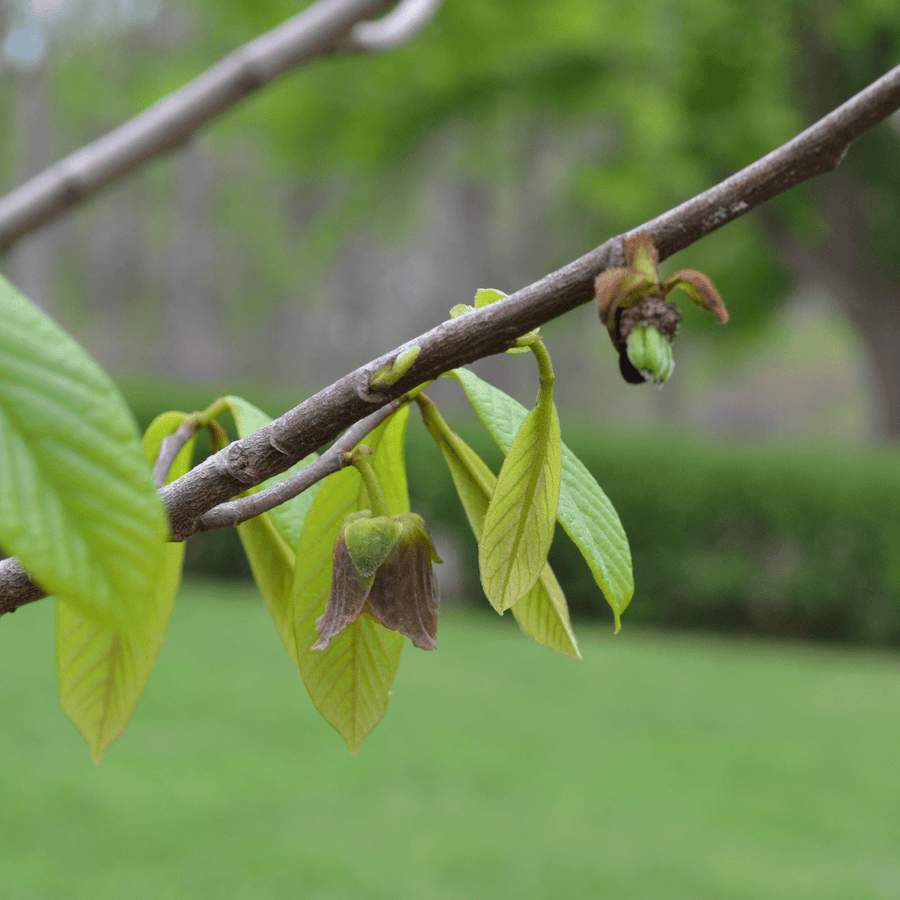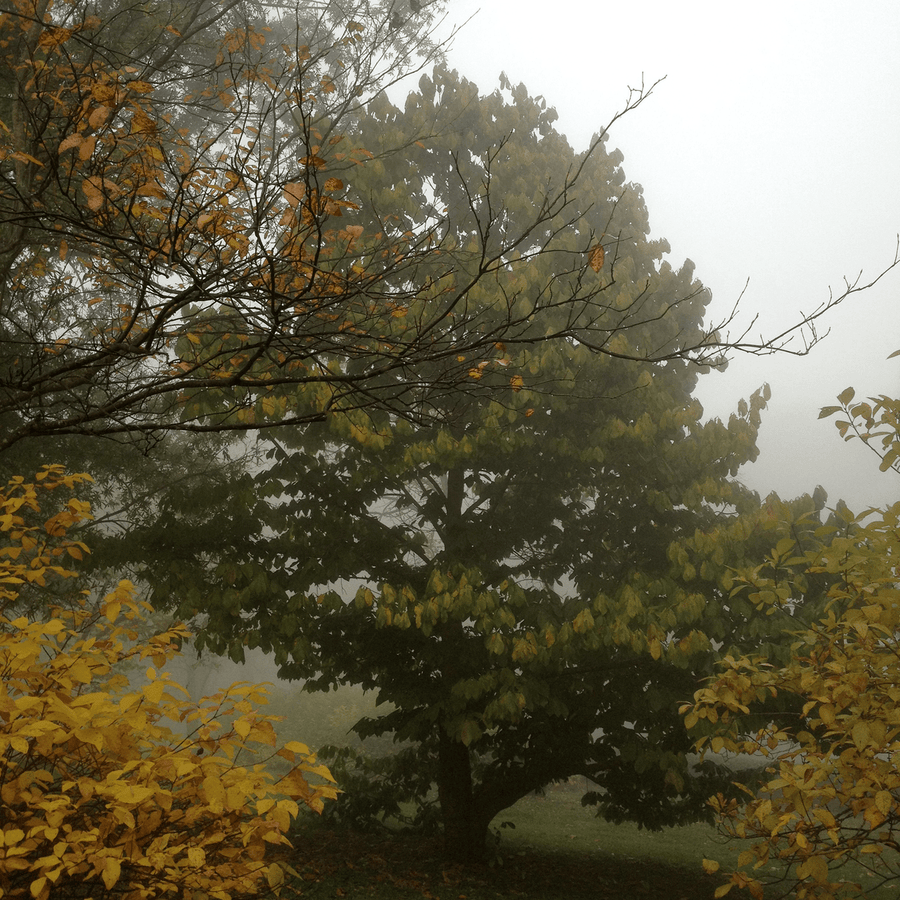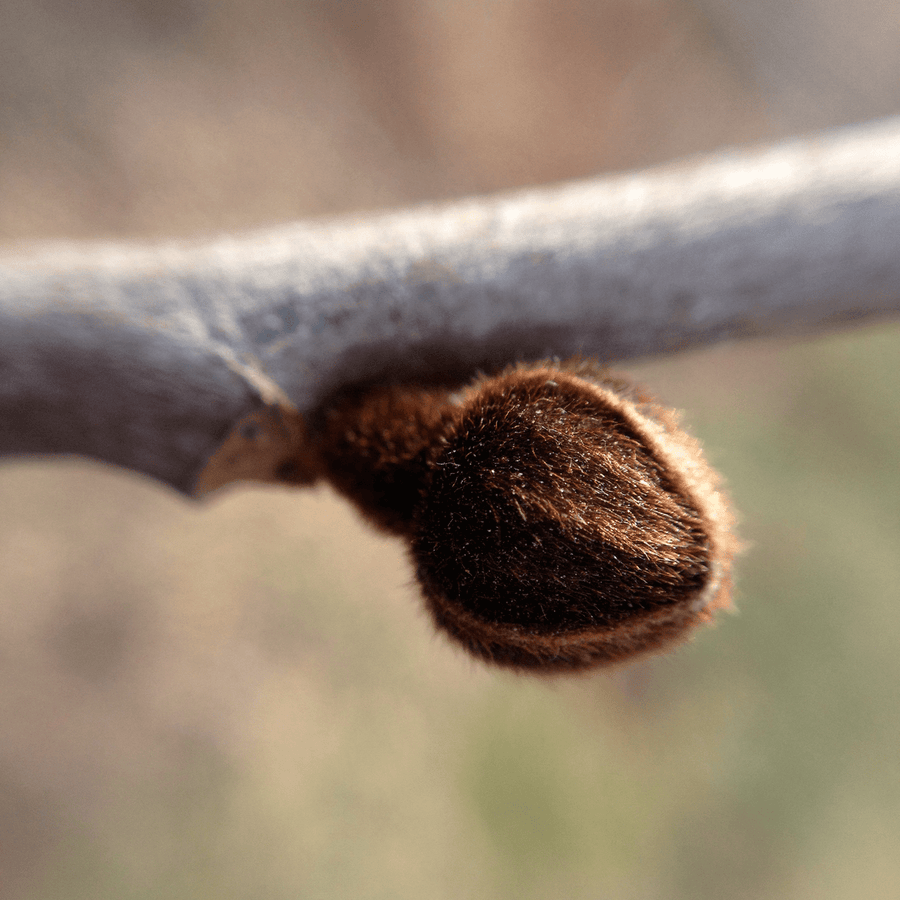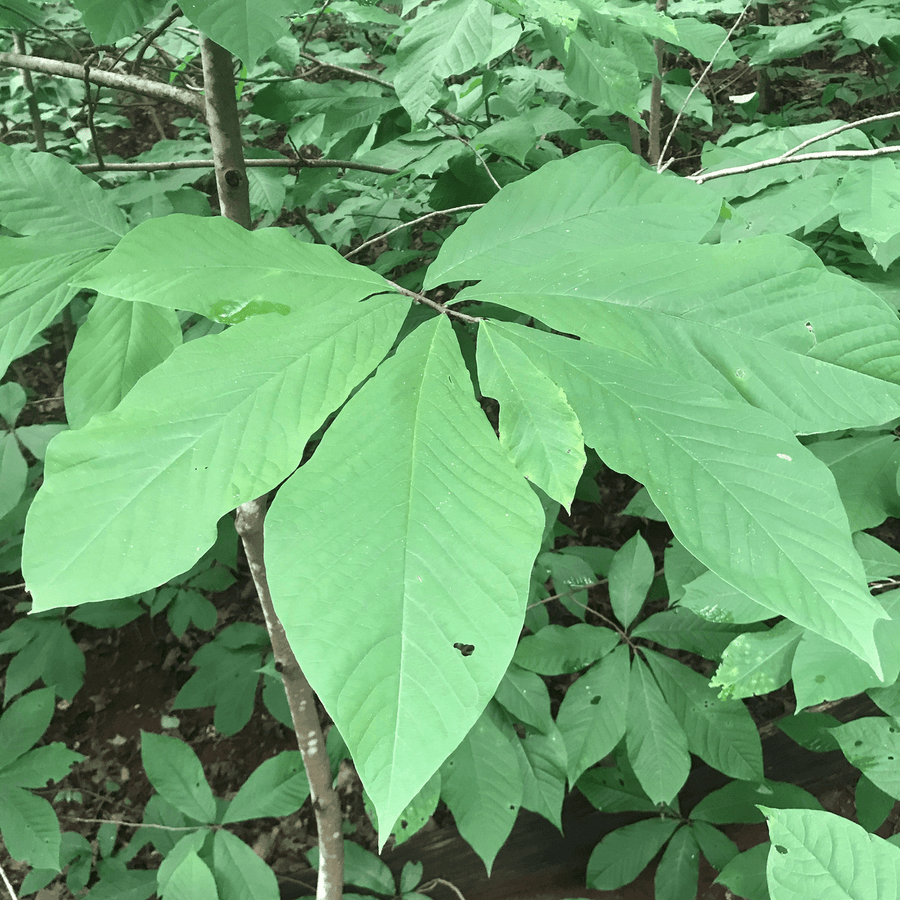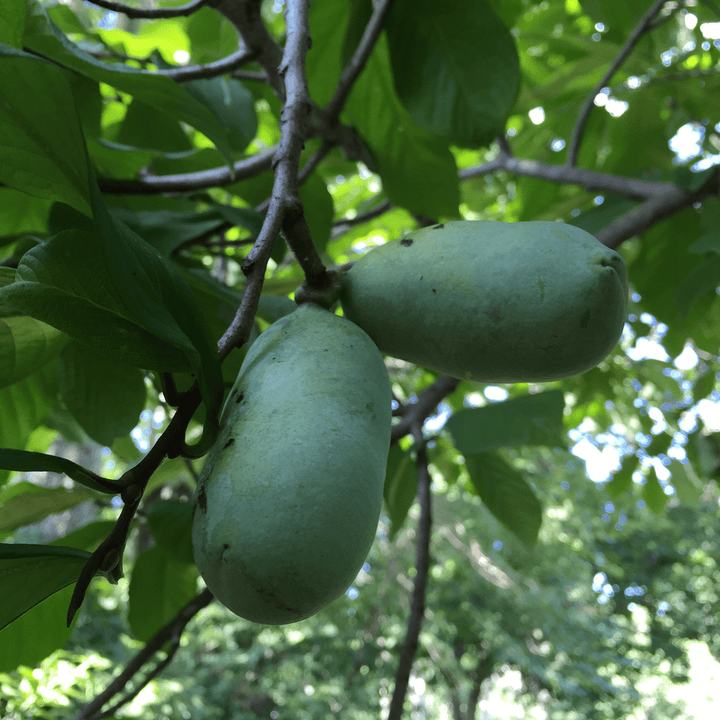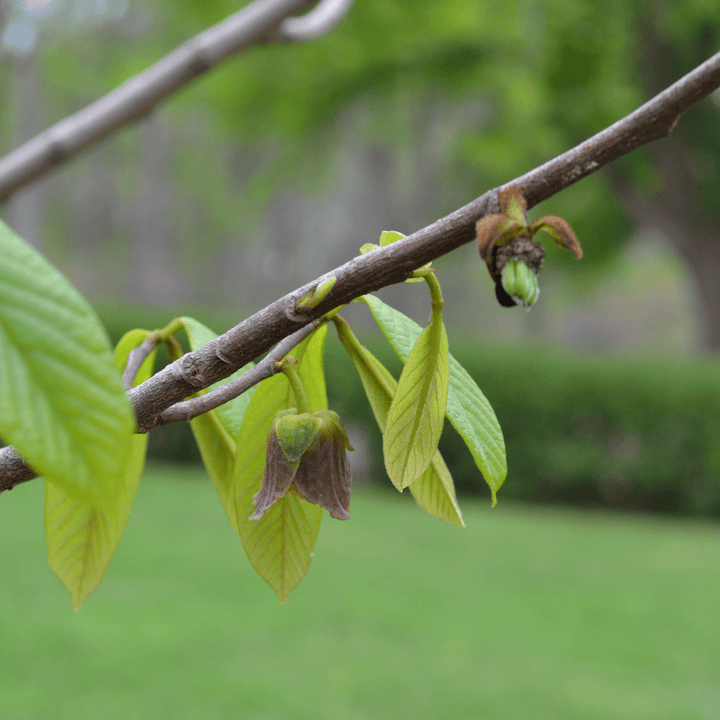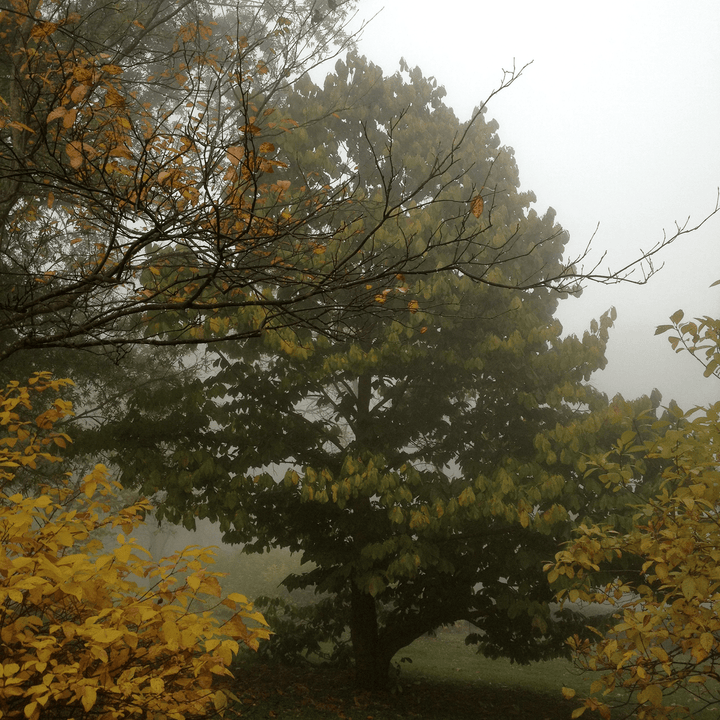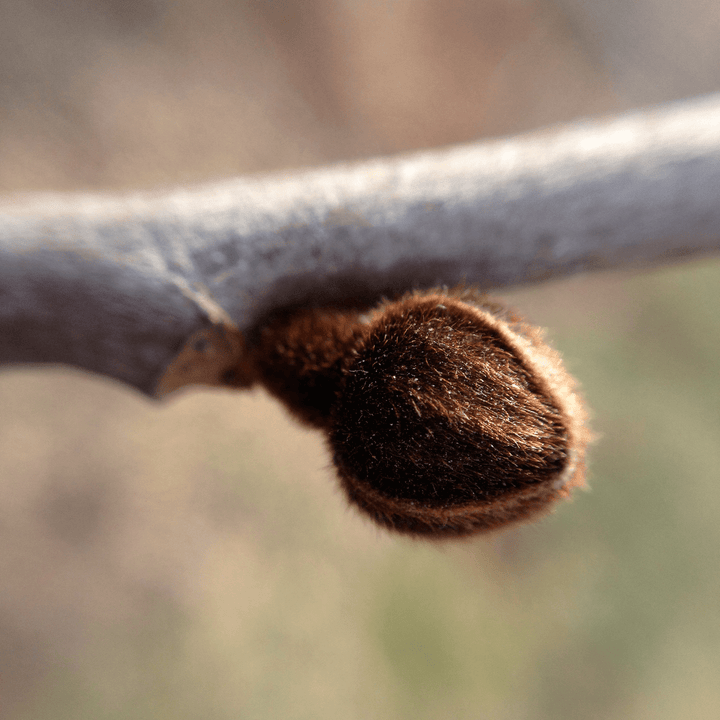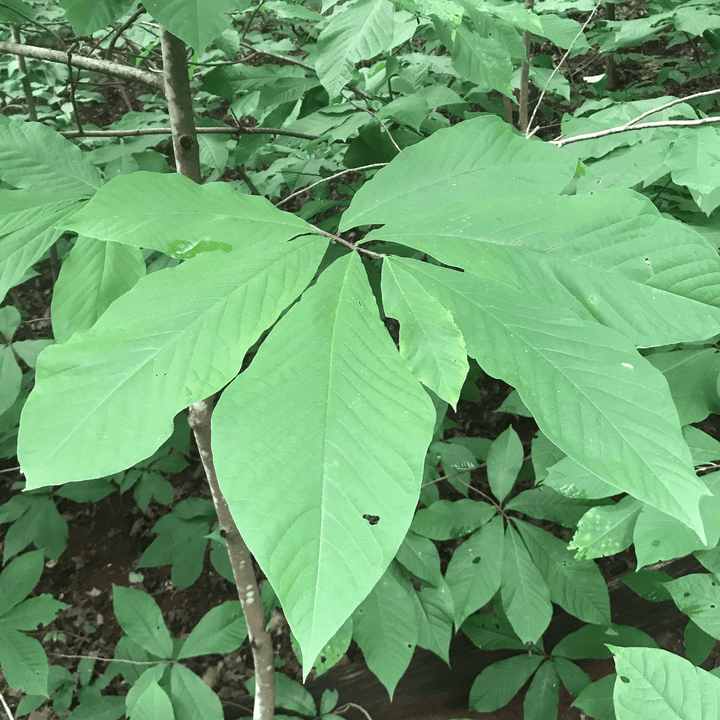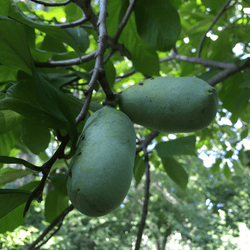Description: North American large shrub or small deciduous tree - Curious, brownish-red flowers in spring and large, sweet, aromatic fruits in fall; large, tropical leaves turn yellow in fall
Habit: Grows 15 to 20 feet high and spreads by underground runners to 30 feet, forming colonies
Culture: Prefers moist, fertile, deep, slightly acid soils, does well in full sun but often grows in deep, moist shade
Hardiness: USDA Zones 5 through 8
Origin: United States
Attributes: Edible fruit; Deer resistant; Fall color; Rain garden
Jefferson-documented
The Paw paw is native from New York to Florida and west to Nebraska and Texas, and is most common in the forests of the Mississippi River valley. British patron Peter Collinson was the first to cultivate it in England and the Paw paw was illustrated by Mark Catesby in his Natural History of Carolina, Florida, and the Bahama Islands (1771). Quaker botanist John Bartram also grew Paw paws in his garden near Philadelphia and Jefferson listed it as an ornamental native in his Notes on the State of Virginia (1782).
This Paw Paw species requires more than one genetically-distinct plant for cross-pollination and fruit set. Our Paw paw is grown from seed, which naturally produces genetically-distinct plants.
Arrives in a half gallon pot. Paw Paw trees are 2 years old and are approximately 2’ tall.
Details
| Genus | Asimina |
|---|---|
| Species | triloba |







